Executive Committee
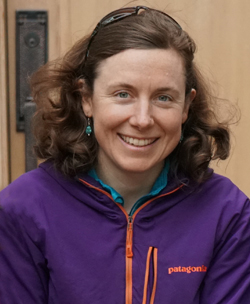
Darcy Dugan
Director, Alaska OA Network; Alaska Ocean Observing System
Darcy Dugan led the development and launch of the Alaska OA Network in 2016, and is now the network’s director. She has worked for the Alaska Ocean Observing System since 2009, collaborating with scientists and stakeholders to fill gaps in ocean monitoring and ensure ocean data and information is available for safe marine operations, environmental stewardship, and decision making. Darcy received a bachelors degree from Stanford University in the Earth Systems program, and a Masters of Environmental Science at the Yale School of Forestry and Environmental Studies where her research focused on coastal vulnerability in western Alaska. She has also served as staff in the Alaska Legislature and as a research associate for the Institute of Social & Economic Research at UAA.
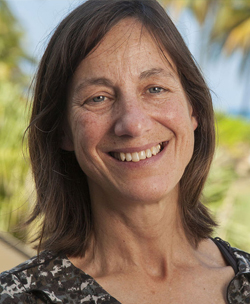
Dorothy Childers
Ex-oficio, Alaska Marine Conservation Council
Dorothy Childers worked for Alaska Marine Conservation Council from 1995-2016 focused on programs to protect the integrity of marine ecosystems and to support the long-term well-being of ocean-dependent communities. She received a Pew Marine Fellowship for an initiative addressing the northern Bering Sea and the cultural and conservation considerations related to changing ocean conditions. Dorothy served 5 terms on the North Pacific Research Board as the conservation representative. She currently serves on the Alaska Ocean Acidification Network steering committee, where she co-produced “The Future Ocean: Carbon Policy and Our Alaska Fisheries” podcast.
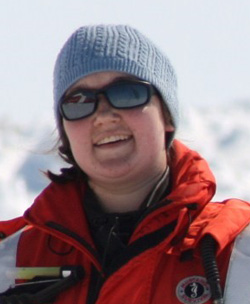
Jessica Cross
NOAA Pacific Marine Environmental Lab
Jessica Cross is a research oceanographer with the NOAA Pacific Marine Environmental Laboratory in Seattle, WA. Her current research focuses on carbon biogeochemistry and ocean acidification in Arctic regions, especially along the Alaskan coast. The main goal is to better understand how acidification processes interact with natural cycles, and eventually to detect impacts of acidification in marine systems. Dr. Cross conducts her research across a variety of platforms, including ship-based measurements, moorings, and mobile autonomous platforms like gliders and drones through NOAA’s Innovative Technology for Arctic Exploration Program. She also broadly participates in the Arctic research community through the Ocean Carbon Biogeochemistry Program, the Pacific Arctic Group, and the Interagency Research Policy Committee collaboration teams.
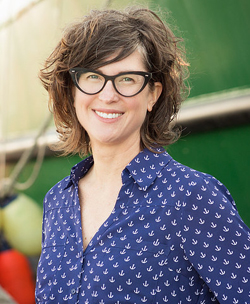
Jamie Goen
Alaska Bering Sea Crabbers
Jamie Goen is the executive director of the Alaska Bering Sea Crabbers. She represents the organization to Federal and State agencies, Congress, the North Pacific Fishery Management Council, at industry and scientific conferences, meetings, and with the press. Her role also includes addressing regulatory and technological issues, scientific concerns, and political needs that may affect the organization or its members’ crabbing interests. Jamie has a BS in Marine Affairs from University of Miami, and an MS in Marine Affairs from the University of Washington. Prior to ABSC, she worked for NOAA Fisheries for 15 years, predominantly on fishing quota programs. She has also worked for North Pacific Fishing Vessel Owners’ Association, the International Pacific Halibut Commission, and in DC as the Congressional Affairs Liaison to the head of NOAA Fisheries. Throughout her career, she has been drawn to stakeholders and their role in managing resources, helping them navigate the process and encouraging their voice.
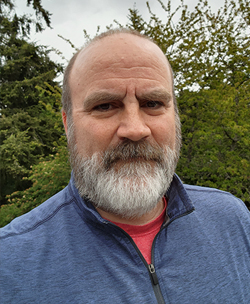
Scott Goodman
Bering Sea Fisheries Research Foundation
Scott Goodman is the Executive Director for the Bering Sea Fisheries Research Foundation and the President of Natural Resources Consultants, Inc. in Seattle. Scott has over 25 years of experience working on fisheries research projects with a strong focus on Bering Sea crab research with BSFRF over the last 15 years. He has helped BSFRF work through complicated crab research and management issues, collaborating with a growing number of scientists at NOAA, ADF&G, several academic partners, and the crab industry stakeholders that support BSFRF research. Scott has a BS in Fisheries Biology and a MS in Marine Affairs, both from the University of Washington. Scott’s company NRC has a long-standing footprint as a fisheries consulting firm known for its ties to research in Alaska working with fishermen across several fish and crab sectors on a variety of issues.
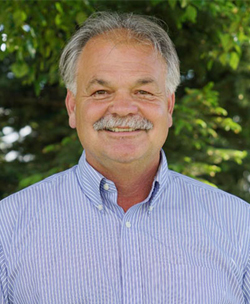
Jeff Hetrick
Alutiiq Pride Marine Institute
Jeff Hetrick is the Director of the Alutiiq Pride Marine Institute (APMI) and the Alaska Ocean Acidification Laboratory in Seward. The Ocean Acidification Lab provides continuous data of water quality from Resurrection Bay, provides discrete sample analysis for 15 coastal partners and conducts OA exposure studies on various species produced at APSH. Jeff has over 30 years of experience in the Alaskan aquaculture industry. He worked 20 years in the salmon enhancement industry working for Private Non-Profits and the Alaska Dept of Fish & Game before becoming Director of the Alutiiq Pride Shellfish Hatchery in 2002. Jeff has operated an oyster farm in Prince William Sound and is a founding member of the Alaskan Shellfish Growers Association.
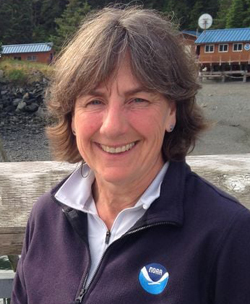
Kris Holderied
NOAA Kasitsna Bay Lab
Kris Holderied is a physical oceanographer and director of the Kasitsna Bay Lab in Kachemak Bay. She oversees research and facility operations at the lab, conducts research on coastal ecosystem change, and supports marine science education. Her coastal research interests are focused on better understanding how changing ocean conditions affect Alaska coastal resources and communities, especially those associated with climate change, harmful algal blooms, and ocean acidification. Holderied is a graduate of the U.S. Naval Academy in Annapolis, Maryland and received a Master of Science in Physical Oceanography from the Massachusetts Institute of Technology/Woods Hole Oceanographic Institution Joint Program.
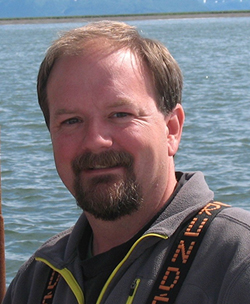
Tom Hurst
NOAA Alaska Fisheries Science Center
Thomas Hurst is a Research Fisheries Biologist and Program Manager at the Alaska Fisheries Science Center’s Hatfield Marine Science Center in Newport, OR. Tom serves as AFSC’s representative to NOAA’s Ocean Acidification Working Group and holds an appointment in the Department of Fisheries and Wildlife at OSU. Tom’s research blends field studies and laboratory experimentation to examine the environmental ecology of early life stages of marine species. Much of this work focuses on the influence of temperature variation and the risks of ocean acidification on the physiology and ecology of fishes including behavior, habitat selection, growth energetics, and larval ecology. Tom earned a B.S. in Wildlife and Fisheries Biology from the University of Massachusetts at Amherst and an M.S. and Ph.D. at Stony Brook University examining the recruitment and ecology of overwintering Hudson River striped bass.
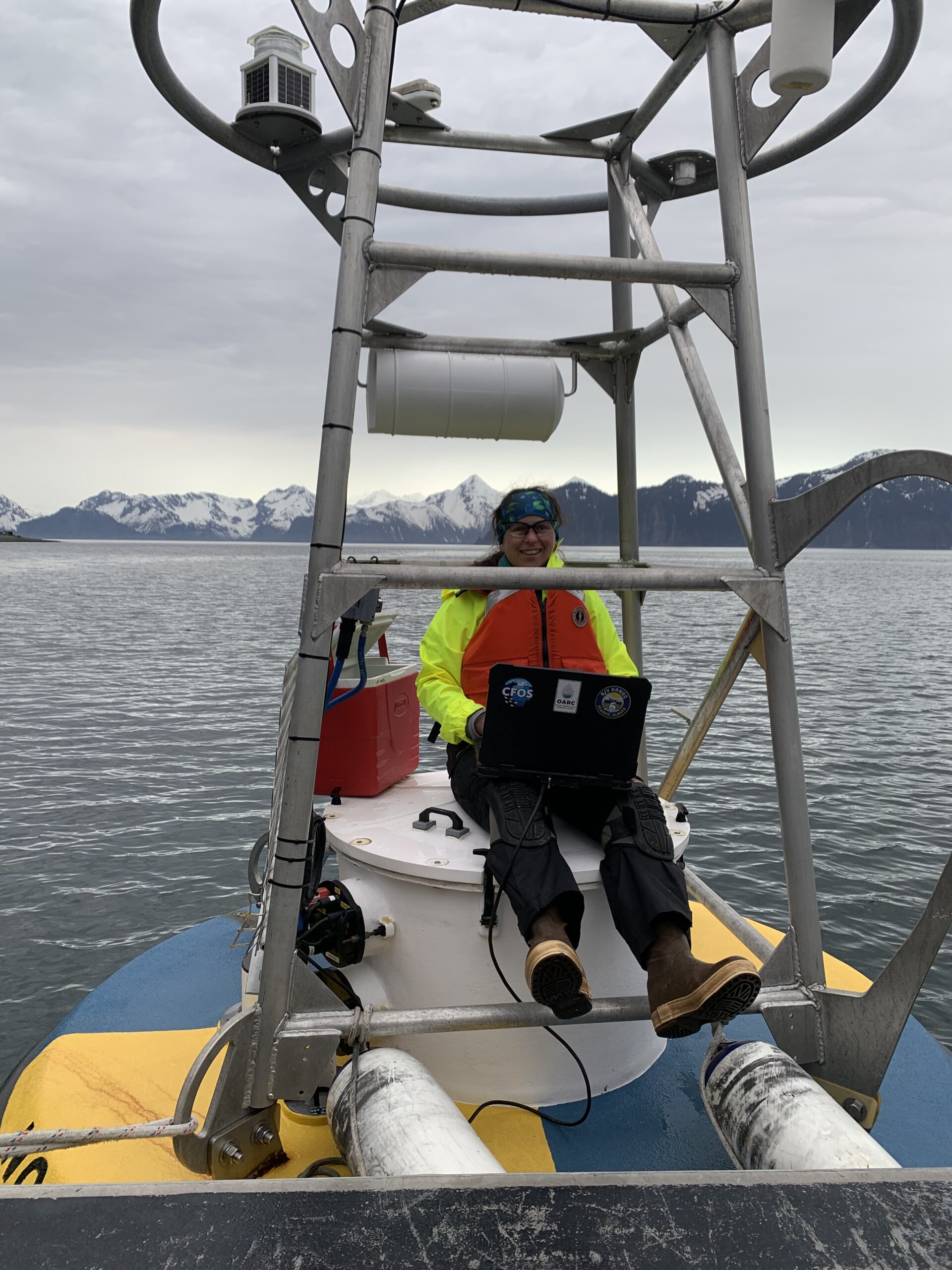
Natalie Monacci
University of Alaska Fairbanks
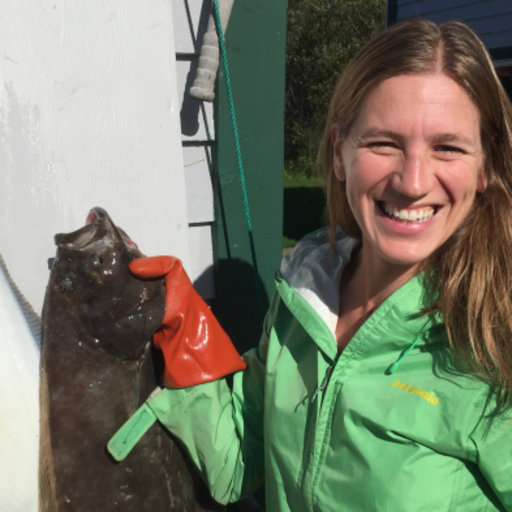
Marysia Szymkowiak
NOAA Alaska Fisheries Science Center
This group oversaw the launch of the network in 2016
- Darcy Dugan – OA Network Coordinator (Alaska Ocean Observing System)
- Shallin Busch (NOAA OA Program)
- Tina Buxbaum (AK Center for Climate Assessment & Policy)
- Dorothy Childers (AK Marine Conservation Council)
- Bob Foy (NOAA AFSC)
- Gary Freitag (AK Sea Grant – Ketchikan)
- Davin Holen (AK Sea Grant – Coastal Resiliency)
- Jeff Hetrick (Alutiiq Pride Shellfish Hatchery)
- Tahzay Jones (National Park Service)
- John Kiser (AK Shellfish Growers Assoc.)
- Michael Kohan (Alaska Seafood Marketing Institute)
- Melissa Good (AK Sea Grant – Unalaska)
- Mike Miller (Sitka Tribe/IPCoMM)
- Molly McCammon (AOOS)
- Natalie Monacci and Jeremy Mathis (UAF OA Research Center)
- Ruth Christiansen (Alaska Bering Sea Crabbers)
